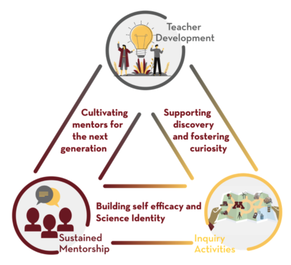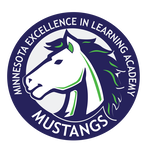 This week's blog post is written by Dr. Seth K. Thompson, Director of Outreach, College of Biological Sciences, University of Minnesota-Twin Cities . MELA is thrilled to have a partnership with the University to help train our teachers and offer experiences for our students in Inquiry-based Science Instruction. Read below to learn more! Inquiry-based Science Experiences Promote Strong Science Identity -Dr. Seth K. Thompson, Director of Outreach, College of Biological Sciences, University of Minnesota-Twin Cities We need a generation of science-minded thinkers Many of the world’s most pressing issues have a scientific basis. From the rise of novel diseases to the collapse of ecosystems across the globe, science and society have never been more intimately connected. Existing barriers to equitable participation in science have limited our ability to train a diverse scientific workforce, a problem that has hindered our scientific innovation. Despite many national efforts, Black, Indigenous, and People of Color (BIPOC) continue to be minoritized in many STEM fields because of numerous experienced barriers for participation and retention. To broaden participation in STEM fields, we must take new and innovative steps to empower and support students interested in STEM careers. Building science identity starts young Children make decisions concerning their career aspirations as early as middle school, and therefore engaging youth in the STEM disciplines is imperative to cultivating STEM career interest. Although a pivotal period of time, there are limited standards-aligned curriculum for young students, let alone culturally relevant and socio-politically grounded materials for elementary and middle school STEM that meet the needs of marginalized youth. Therefore, there is a pressing need to develop new learning opportunities that bring authentic science into the classroom in a way that all students can connect with. Inquiry-based programming is particularly promising on this front because it actively engages youth in the scientific process and empowers students to make meaning of their world through the lens of questioning, testing, and data-driven conclusions. By instilling these practices in young students, we can better prepare our students to make evidence-based decisions throughout their lives, regardless of the career path they ultimately choose to pursue. Innovation at MELA through strategic partnerships At MELA, we are exploring these innovative opportunities through a strategic partnership between MELA and the College of Biological Sciences. Our program consists of three key activities: i) sustained teacher professional development, ii) near-peer mentorship to enhance STEM identity and retention, iii) student-centered authentic inquiry-based discovery and learning about cutting-edge research. By building relationships between classroom teachers and university scientists, our partnership looks to inspire young students to embrace science as a framework for better understanding the world around them. Over the past three years, we have worked together to bring exciting new science experiences to MELA students. Whether it's organizing field trips to the College’s research field station, pairing students with scientist pen-pals, or working along students to study the impact of environmental pollution on the development of aquatic organisms, each of our partnership activities promotes student autonomy, critical thinking, and science-process skill development. By offering students these inquiry-based experiences, MELA is preparing their students to be actively engaged citizens with the skills and confidence to navigate and increasingly technical and scientifically informed world. Comments are closed.
|
Archives
May 2022
Categories |

 RSS Feed
RSS Feed

